Yevgeny Prigozhin and his Wagner Group fighters in Bakhmut © Telegram
The Russian tycoon and mercenary leader Yevgeny Prigozhin, who headed the Wagner Group, a private military company, perished in an air crash in August. His life was full of twists and turns, from being a former prisoner to a cook to a warlord to a rebel. He amassed a huge fortune, and on October 2, it was revealed that he had bequeathed almost all of it to his son.
According to some sources, his fortune could amount to several billion dollars and consist of various properties such as luxury villas, hotels and a large stash of gold and cash. Pavel Prigozhin, 25, is the designated heir to his father’s empire and has “already announced himself as Yevgeny Prigozhin’s successor,” a source close to the family told Russian investigative news portal VChK- OGPU. Prigozhin’s daughters, Veronika, 18, and Polina, 31, will reportedly receive only “a few things”.
His widow, Lyubov Valentinovna Prigozhina, reportedly received money and property from her husband before his death, after he tried to lead his mercenaries in a doomed uprising against the Kremlin in late June. But what – and how much – will Pavel get? The answer, as with everything to do with Prigozhin, is opaque. The warlord, who was close to President Vladimir Putin as his personal chef, worked in the dark, using different passports and identities to travel around the world. The same goes for his wealth: earlier reports point to a complex – and deliberately opaque – network of shell companies that he used to hide his wealth from Western governments and especially from the sanctions imposed after Russia’s invasion of Ukraine.

One of the most credible sources of Prigozhin’s wealth is President Putin himself, who revealed after the unsuccessful Wagner revolt that Prigozhin’s mercenary army received almost $1 billion from the Kremlin between May 2022 and May 2023.
Putin also mentioned that another catering company owned by Prigozhin received almost $900 million during the same period. “I want to emphasise, and I want everyone to be aware of this: the entire Wagner Group was fully supported by the state,” Putin said. “From the Ministry of Defence, from the state budget, we have fully financed this group.” Considering that the Wagner Group has been operating since 2014, the conclusion is obvious: Prigozhin’s companies have earned several billion from the Kremlin’s coffers alone.
| Weapons, gold and diamonds
It is evident that the payments from the Kremlin were not the only source of income for Prigozhin and his enterprises – and thus not the only source of the wealth that will now reportedly go to his son. How much of this wealth belonged to Prigozhin and his family is also difficult to estimate, with figures varying from the hundreds of millions to more than one billion dollars. Before he died, Wagner’s mercenaries had spread their operations across different parts of the African continent, including in Mali, Sudan and the Central African Republic, offering their services as a hired shield against violence and local terrorist groups. Wagner often demanded payment in gold and diamonds, instead of cash or bank transfers; an effective way to hide their earnings. They also made money from activities other than security; over the years, Wagner has taken over assets such as oil concessions and gold mines – with profitable outcomes. The estimated $250 million that Prigozhin made in this period from its mercenary-backed ventures and other non-security activities in countries such as Sudan and Syria helped it become a powerful ally of President Vladimir Putin in his full-scale invasion of Ukraine.
But Prigozhin’s business empire also included sports hotels, restaurants, business centres, a gourmet grocery store, beer and vodka production, cutting timber, and much more.
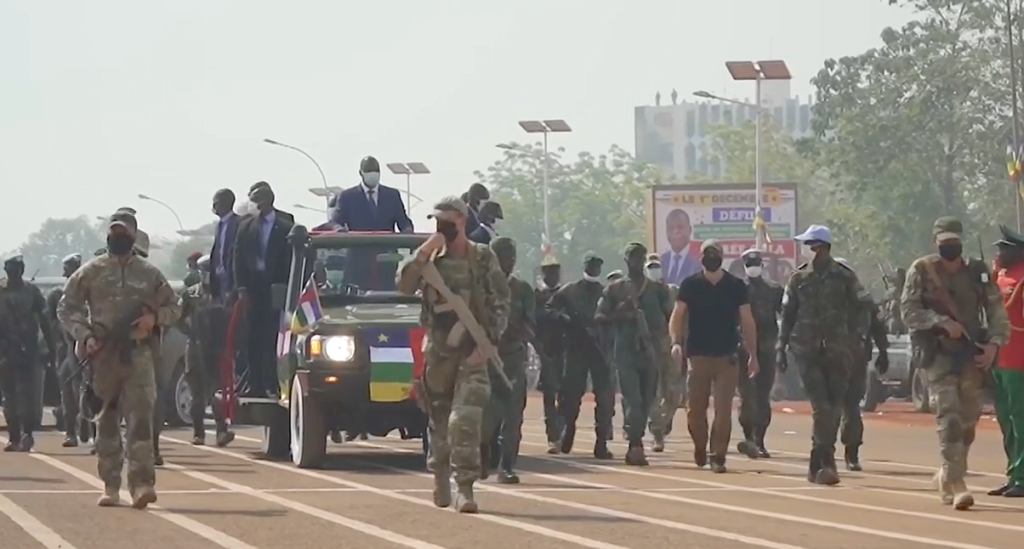
He had a total of six active companies registered under his name that have not already been dissolved. Three of these companies are separate legal entities associated with the catering company Concord. Prigozhin is also a director of a real estate company responsible for the legal management of the PMC Wagner Centre. In addition, he owned 49 per cent of a film distribution company and 80 per cent of a real estate rental and management company.
Russian journalists have also uncovered links between Prigozhin and various companies not officially registered under his name and that made considerable profits in 2022.
One example is ‘Russockapital’, a company that supplies food to schools and hospitals in Moscow. Russockapital secured over 150 government contracts and made a profit of 760 million rubles ($8.9 million). ‘Verona’ is another company linked to Prigozhin, which earned 750 million rubles ($8.8 million) from catering contracts with Moscow schools.
And in 2021, a company called ‘Megaline’, informally linked to Prigozhin, entered into an agreement with the municipal investment committee, with the aim of building a maritime industrial complex near the city. Prigozhin had expressed his intention of investing a substantial amount of up to 300 billion rubles ($3.5 billion) in improving St. Petersburg’s infrastructure.
| The cream of the crop
Thanks to their considerable wealth, the Prigozhin family enjoyed a luxurious lifestyle. According to various sources, his daughters are passionate riders who actively participated in numerous European show jumping competitions. In the years after 2014, they are said to have had their own horse collection, which was a personal stable.
Prigozhin’s wife and two children had several assets registered in their names. One notable example is the ownership of land in a gated community called Lake Lakhta outside St. Petersburg. The Concord company oversaw the construction of 49 villas in this community, some of which belong to Prigozhin, his wife Lyubov, their son Pavel and their daughter Polina. In total, these properties cover an area of about 17,000 square metres.
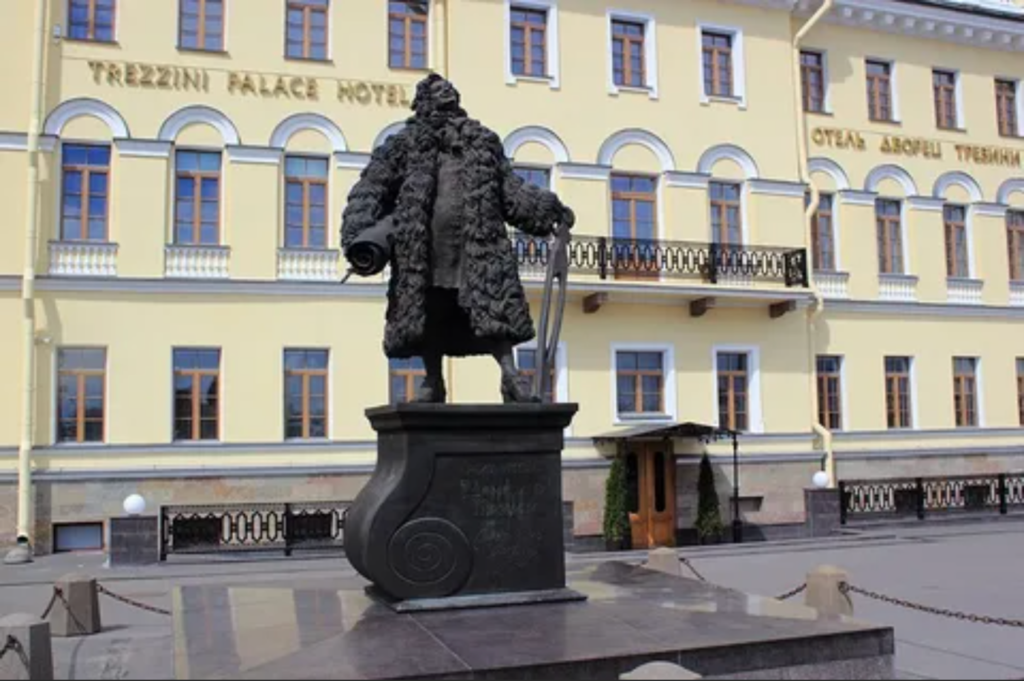
In addition, Prigozhin’s daughter Veronika is the registered founder of a The Trezzini Palace Hotel near the Mariinsky Theatre, while Pavel Prigozhin has built a business centre on the Sinopskaya embankment. The family also owns other properties throughout St Petersburg. Some of these properties have a long history, such as a restaurant that opened in 1996 and was frequently used by Prigozhin to entertain and dine with the city’s political elite.
In November 2022, following the revelation of Prigozhin’s leadership role in the Wagner Group, the “PMC Wagner Centre” was established in St. Petersburg. The centre, housed in a 23-storey building on Zolnaya Street, had ambitions to become a sprawling centre for projects supporting the invasion effort. It declared its intention to provide free office space to “patriotic” creatives, designers and IT specialists.
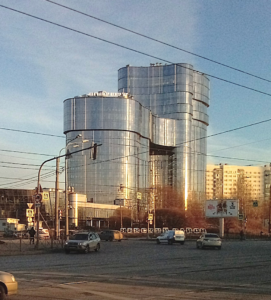
Over the next six months, the centre attracted many new users, including “Z-bloggers”,” a drone-flying school and the “Cyberfront-Z” movement, which coordinated the posting of pro-war comments on social media. Russian investigative journalists reported that a group within the centre was conducting “master classes” in military training for “orphans” and “troubled teenagers”. It was also revealed that these classes involved “instructors” with established ties to neo-Nazi organisations.
It has been reported that Prigozhin maintained offices in St Petersburg at the Trezzini Palace Hotel, which he considers his own home. On 24 June, when Wagner forces were still en route to Moscow, police raided the hotel, seizing 4 billion rubles ($46.8 million) in cash as well as cases of firearms, fake passports with his photographs, and five kilos of an unknown white powder. Prigozhin claimed that the money was intended for the Wagner Group soldiers.
But there are also more recent properties, such as a restaurant on the University Embankment, which was the site of a bomb attack in April 2023 that killed the Ukrainian-born Russian military blogger, Vladlen Tatarsky. After this tragic incident, Prigozhin claimed to have handed over control of the café to the Cyberfront Z movement.
| Wagner’s uncertain future
In the midst of an uncertain future, Wagner itself is in the limelight. Prigozhin, the man behind it, has been associated with inflicting pain and suffering on many Ukrainians, Russians, Syrians and Africans. His propaganda organisations and troll farms have relentlessly targeted Russian journalists and opposition figures. Its forces are accused of heinous war crimes in Syria, massacres in various African countries and the torture of prisoners in Ukraine.
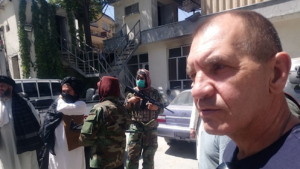
Moreover, its mercenaries have failed to curb Islamist violence in the countries where they have been deployed, such as in Mali, where recent attacks tragically killed 49 civilians and 15 soldiers, according to the government report.
However, Prigozhin has also built a loyal following, including people such as Maksim Shugalei, a sociologist by profession, who was imprisoned in Libya for over a year while Prigozhin campaigned for his release. Shugalei, who lives in St Petersburg, dismissed the idea that the Russian government could take over Wagner completely or operate with the same level of effectiveness. He also mentioned Prigozhin’s relatively unknown son Pavel as a possible heir to the Wagner empire.
“I think he’s got to take on some of the problems,” he said, referring to Pavel Prigozhin. “As far as I know, he’s prepared to.”
Some observers speculate that 25-year-old Pavel Prigozhin will try to take control of his father’s company. Last year, he himself was the target of sanctions by the United States because of his involvement in three real estate companies in St Petersburg. In a statement last year, his father claimed that Pavel had taken part in conflicts in Syria and had been constantly present in various volatile regions as part of the Wagner PMC. However, the veracity of these claims remains unverified.
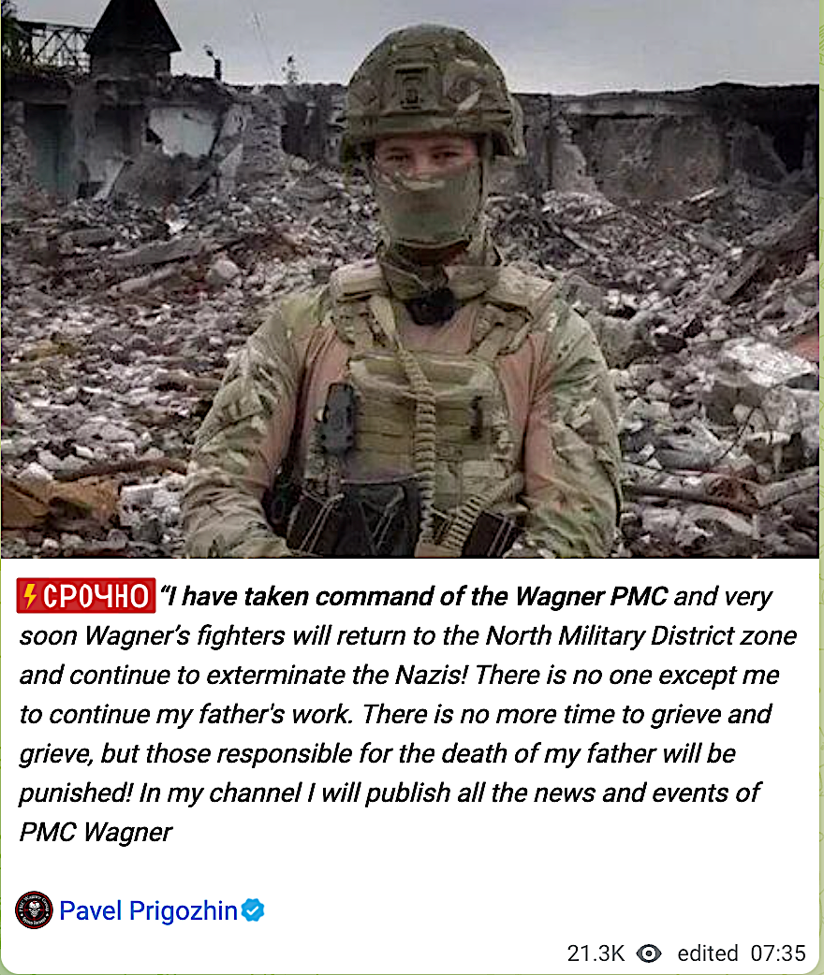
It is possible that Pavel could keep part of his father’s fortune in Russia. According to the independent Russian news magazine Agentstvo, these assets will fetch about $800 million in 2022 at the current exchange rate. However, if Pavel wants to continue to operate internationally, he would likely need the Kremlin’s approval. Governments seeking Moscow’s geopolitical support, along with local militias, play an important role in the overseas market.
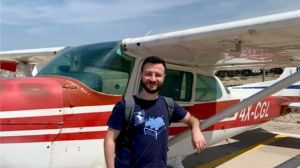
| President Putin’s pick
Recently, the Kremlin released photos and a short transcript of a meeting between Russian President Vladimir Putin and Andrei Troshev, Wagner’s former chief of staff. After the failed mutiny of former leader Yevgeny Prigozhin, Putin appointed Troshev as the new head of the paramilitary organisation.
Towards the end of September, Putin publicly put Troshev in charge of leading “volunteer” units in various combat operations, including in Ukraine. A Kremlin spokesperson later described Troshev, who already has experience with Wagner operations in Syria, as an employee of the Russian Defence Ministry.
Andrei Troshev, a former military veteran, was one of the founding members and managing directors of the Wagner Group. Even before the attempted uprising in June that led to the split from the Wagner forces, he had a controversial past within the group. Troshev, whose call sign is “Siedoy” or “Grey Hair”, served as Wagner commander during the Russian military intervention in Syria in 2015.
In 2017, Troshev was found in a near-comatose state on a street in St. Petersburg and hospitalised. According to Russian media and police reports, he had 5 million roubles ($78,448) and $5,000 in cash on him at the time. He was also allegedly found with military maps of Syria, airline tickets and receipts for new weapons. A year later, Troshev was awarded the Hero of the Russian Federation, Russia’s highest military title, for his service in Syria.
Troshev’s decision not to take part in Wagner’s attempted insurrection meant, of course, that he was not on board the private jet that crashed on 23 August along with Prigozhin and other senior officers.
A complication arises, however, from the fact that Troshev was allegedly involved in getting other Wagner employees to sign contracts with the Ministry of Defence during the time of the Wagner uprising. This information is based on an assessment by British military intelligence, which has supported Putin’s faction in the struggle over the future direction of the paramilitary organisation and its affiliations. The assessment, dated 30 September, suggests that many Wagner veterans may view Troshev as a traitor.
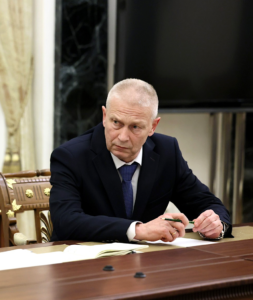
According to US officials, there are about twelve private companies that may become involved in paramilitary operations. Among them, PMC Redut is a prominent contender because of its close ties to military intelligence. However, a Telegram account linked to Wagner recently criticised PMC Redut for not fulfilling the “original contract terms” promised to its recruits.
In Africa’s most vulnerable countries, demand for Wagner’s main service which is regime protection, remains high. Interestingly, the fall of Prigozhin has only increased the interest of some African countries in a closer relationship with the Kremlin, especially those that were previously reluctant to engage Wagner, such as Burkina Faso.
When Yunus-bek Yevkurov, Russia’s Deputy Minister of Defence arrived there at the beginning of September, he was greeted by Capt. Ibrahim Traoré, the country’s 35-year-old leader, who seized power in a military coup last year. One of several West African leaders to sever ties with the former colonial power, France, in recent years, Traoré had held a warm meeting with Putint at a Russia-Africa summit in St. Petersburg in July where he said, “Russia is part of Africa’s family.”
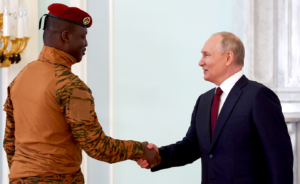
| Two Wagner funerals
By then, Prigozhin had been buried in St. Petersburg. The mercenary leader’s press service announced that the farewell ceremony for Yevgeny Viktorovich was held in closed session and those who wished to pay their last respects to him were directed to the Porokhovskoye cemetery.
According to a cemetery employee interviewed by the Russian news agency Agency News, about 30 people were present at the ceremony, made up entirely of relatives and close friends. According to reports, all the mourners attended in civilian clothes and not in uniform.
Meanwhile, in another cemetery less than five miles away, members and admirers of the Wagner Group gathered to mourn the loss of Valeriy Chekalov, who oversaw Prigozhin’s enterprises in Russia and Syria and who had also died in the crash.
However, funeral arrangements for Dmitry Utkin, a Wagner co-founder were not confirmed and remained uncertain.
Scores of mourners made their way to St. Petersburg’s Serafimovskoye cemetery, often used for high-profile military funerals, to pay their last respects to Chekalov. Before entering the cemetery, mourners had to pass through metal detectors and a drone was observed flying overhead. Among those present were members and supporters of the Wagner group, most of them in civilian clothes, with some wearing caps with the Wagner logo.

Neither Vladimir Putin nor other government or military officials were present at either funeral. The Kremlin said that it had not known about the funeral arrangements for Prigozhin and that the decision about the president’s presence had been taken by the deceased’s relatives and close associates.
According to Russian news sources, public mourning ceremonies for Prigozhin and other Wagner officials were banned because of fears of unrest among their supporters, which led to an increased presence of police and national guards at cemeteries in St Petersburg. As far as Prigozhin was concerned, the Kremlin was faced with the question of how to commemorate him, as he had previously been honoured with one of Russia’s highest awards, but was then denounced as a traitor by President Vladimir Putin after the June uprising.
Be that as it may, the deaths of Prigozhin and other top Wagner figures were widely attributed to Putin and the Kremlin.
The cemetery employee, who has over 30 years of experience in the funeral business, described Prigozhin’s burial as a routine VIP burial with nothing out of the ordinary.
He added that it was not the first burial of this kind and probably would not be the last.

